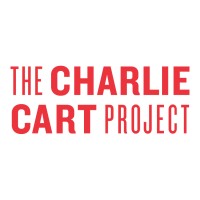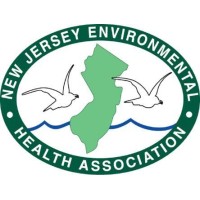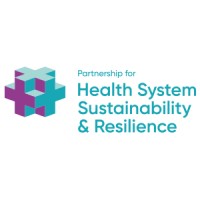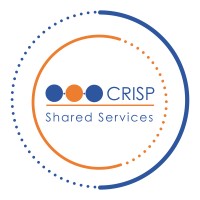Company Details
the-charlie-cart-project
9
719
923
charliecart.org
0
THE_1649430
In-progress

The Charlie Cart Project Company CyberSecurity Posture
charliecart.orgThe Charlie Cart Project is a food education program on wheels. Our compact mobile kitchen -- the Charlie Cart -- comes fully equipped with the tools, training and curriculum that educators need to deliver high quality hands-on cooking lessons in classrooms, libraries and clinics across the country. Currently in 400+ locations in 47 states. Learn more at charliecart.org. A rigorous curriculum, connected to Common Core math, science and English Language Arts, makes it easy for teachers to integrate food education into the academic day, while maximizing and enhancing instructional time.
Company Details
the-charlie-cart-project
9
719
923
charliecart.org
0
THE_1649430
In-progress
Between 750 and 799

 CCP Global Score (TPRM)
CCP Global Score (TPRM)XXXX



No incidents recorded for The Charlie Cart Project in 2025.
No incidents recorded for The Charlie Cart Project in 2025.
No incidents recorded for The Charlie Cart Project in 2025.
CCP cyber incidents detection timeline including parent company and subsidiaries

The Charlie Cart Project is a food education program on wheels. Our compact mobile kitchen -- the Charlie Cart -- comes fully equipped with the tools, training and curriculum that educators need to deliver high quality hands-on cooking lessons in classrooms, libraries and clinics across the country. Currently in 400+ locations in 47 states. Learn more at charliecart.org. A rigorous curriculum, connected to Common Core math, science and English Language Arts, makes it easy for teachers to integrate food education into the academic day, while maximizing and enhancing instructional time.


2025 marks 100 years of the Harkness Fellowships! In celebration of this milestone, the Commonwealth Fund is introducing this space dedicated to honoring the program’s remarkable legacy, dynamic present, and visionary future. Join us here for stories and insights highlighting contributions to public

The mission of the New Jersey Environmental Health Association is to support the professional growth of environmental health specialists, provide a unified and informed voice in the development of public health practice and policy, and enhance the ability of members to aptly promote environmental an

The Partnership for Health System Sustainability and Resilience (PHSSR) is a not-for-profit and non-promotional collaboration between businesses, academic, non-governmental, life sciences and healthcare organisations aimed at studying and helping to build health systems that are both sustainable and

Alimentando el Cambio es una plataforma impulsada por Danone para profesionales de la nutrición, dietistas y estudiantes universitarios donde encontrarán información rigurosa y herramientas útiles para colaborar, divulgar y promover una alimentación saludable y sostenible. Nuestro propósito es clar

CRISP Shared Services is a nonprofit dedicated to improving health infrastructure and data exchange technology nationwide. We collaborate with organizations to deliver modern, efficient solutions that enhance patient care, streamline care coordination and advance public health. With a proven track

The Wright Center for Community Health Practices in Clarks Summit, Hawley, Scranton, Jermyn, North Pocono and Wilkes-Barre, offer primary health care services for children and adults across Northeastern Pennsylvania. Our practices follow the Patient-Centered Medical Home (PCMH) model, a delivery str
.png)
The Charlie Cart Project is a hands-on cooking program that teaches food literacy and cooking in schools. It is a fully equipped, colorful mobile kitchen.

Explore insights on cybersecurity incidents, risk posture, and Rankiteo's assessments.
The official website of The Charlie Cart Project is http://charliecart.org/.
According to Rankiteo, The Charlie Cart Project’s AI-generated cybersecurity score is 760, reflecting their Fair security posture.
According to Rankiteo, The Charlie Cart Project currently holds 0 security badges, indicating that no recognized compliance certifications are currently verified for the organization.
According to Rankiteo, The Charlie Cart Project is not certified under SOC 2 Type 1.
According to Rankiteo, The Charlie Cart Project does not hold a SOC 2 Type 2 certification.
According to Rankiteo, The Charlie Cart Project is not listed as GDPR compliant.
According to Rankiteo, The Charlie Cart Project does not currently maintain PCI DSS compliance.
According to Rankiteo, The Charlie Cart Project is not compliant with HIPAA regulations.
According to Rankiteo,The Charlie Cart Project is not certified under ISO 27001, indicating the absence of a formally recognized information security management framework.
The Charlie Cart Project operates primarily in the Public Health industry.
The Charlie Cart Project employs approximately 9 people worldwide.
The Charlie Cart Project presently has no subsidiaries across any sectors.
The Charlie Cart Project’s official LinkedIn profile has approximately 719 followers.
No, The Charlie Cart Project does not have a profile on Crunchbase.
Yes, The Charlie Cart Project maintains an official LinkedIn profile, which is actively utilized for branding and talent engagement, which can be accessed here: https://www.linkedin.com/company/the-charlie-cart-project.
As of November 28, 2025, Rankiteo reports that The Charlie Cart Project has not experienced any cybersecurity incidents.
The Charlie Cart Project has an estimated 279 peer or competitor companies worldwide.
Total Incidents: According to Rankiteo, The Charlie Cart Project has faced 0 incidents in the past.
Incident Types: The types of cybersecurity incidents that have occurred include .
.png)
Angular is a development platform for building mobile and desktop web applications using TypeScript/JavaScript and other languages. Prior to versions 19.2.16, 20.3.14, and 21.0.1, there is a XSRF token leakage via protocol-relative URLs in angular HTTP clients. The vulnerability is a Credential Leak by App Logic that leads to the unauthorized disclosure of the Cross-Site Request Forgery (XSRF) token to an attacker-controlled domain. Angular's HttpClient has a built-in XSRF protection mechanism that works by checking if a request URL starts with a protocol (http:// or https://) to determine if it is cross-origin. If the URL starts with protocol-relative URL (//), it is incorrectly treated as a same-origin request, and the XSRF token is automatically added to the X-XSRF-TOKEN header. This issue has been patched in versions 19.2.16, 20.3.14, and 21.0.1. A workaround for this issue involves avoiding using protocol-relative URLs (URLs starting with //) in HttpClient requests. All backend communication URLs should be hardcoded as relative paths (starting with a single /) or fully qualified, trusted absolute URLs.
Forge (also called `node-forge`) is a native implementation of Transport Layer Security in JavaScript. An Uncontrolled Recursion vulnerability in node-forge versions 1.3.1 and below enables remote, unauthenticated attackers to craft deep ASN.1 structures that trigger unbounded recursive parsing. This leads to a Denial-of-Service (DoS) via stack exhaustion when parsing untrusted DER inputs. This issue has been patched in version 1.3.2.
Forge (also called `node-forge`) is a native implementation of Transport Layer Security in JavaScript. An Integer Overflow vulnerability in node-forge versions 1.3.1 and below enables remote, unauthenticated attackers to craft ASN.1 structures containing OIDs with oversized arcs. These arcs may be decoded as smaller, trusted OIDs due to 32-bit bitwise truncation, enabling the bypass of downstream OID-based security decisions. This issue has been patched in version 1.3.2.
Suricata is a network IDS, IPS and NSM engine developed by the OISF (Open Information Security Foundation) and the Suricata community. Prior to versions 7.0.13 and 8.0.2, working with large buffers in Lua scripts can lead to a stack overflow. Users of Lua rules and output scripts may be affected when working with large buffers. This includes a rule passing a large buffer to a Lua script. This issue has been patched in versions 7.0.13 and 8.0.2. A workaround for this issue involves disabling Lua rules and output scripts, or making sure limits, such as stream.depth.reassembly and HTTP response body limits (response-body-limit), are set to less than half the stack size.
Suricata is a network IDS, IPS and NSM engine developed by the OISF (Open Information Security Foundation) and the Suricata community. In versions from 8.0.0 to before 8.0.2, a NULL dereference can occur when the entropy keyword is used in conjunction with base64_data. This issue has been patched in version 8.0.2. A workaround involves disabling rules that use entropy in conjunction with base64_data.

Get company history
















Every week, Rankiteo analyzes billions of signals to give organizations a sharper, faster view of emerging risks. With deeper, more actionable intelligence at their fingertips, security teams can outpace threat actors, respond instantly to Zero-Day attacks, and dramatically shrink their risk exposure window.
Identify exposed access points, detect misconfigured SSL certificates, and uncover vulnerabilities across the network infrastructure.
Gain visibility into the software components used within an organization to detect vulnerabilities, manage risk, and ensure supply chain security.
Monitor and manage all IT assets and their configurations to ensure accurate, real-time visibility across the company's technology environment.
Leverage real-time insights on active threats, malware campaigns, and emerging vulnerabilities to proactively defend against evolving cyberattacks.




